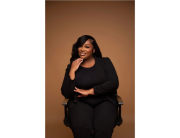Journalism is the production and distribution of reports on the interaction of events, facts, ideas, and people that are the “news of the day” and that informs society.The word, a noun, applies to the occupation (professional or not), the methods of gathering information, and the organizing literary styles.The appropriate role for journalism varies from country to country, as do perceptions of the profession, and the resulting status.
Journalistic conventions vary by country. In the United States, journalism is produced by media organizations or by individuals. Bloggers are often regarded as journalists. The Federal Trade Commission requires that bloggers who write about products received as promotional gifts, disclose that they received the products for free. This is intended to eliminate conflicts of interest and protect consumers.
In the US, many credible news organizations are incorporated entities, have an editorial board, and exhibit separate editorial and advertising departments. Many credible news organizations, or their employees, often belong to and abide by the ethics of professional organizations such as the American Society of News Editors, the Society of Professional Journalists, Investigative Reporters & Editors, Inc., or the Online News Association. Many news organizations also have their own codes of ethics that guide journalists’ professional publications. For instance, The New York Times code of standards and ethics is considered particularly rigorous.
When crafting news stories, regardless of the medium, fairness and bias are issues of concern to journalists. Some stories are intended to represent the author’s own opinion; others are more neutral or feature balanced points of view. In a traditional print newspaper and its online version, information is organized into sections. This makes clear the distinction between content based on fact and on opinion. In other media, many of these distinctions break down.
Readers should pay careful attention to headings and other design elements to ensure that they understand the journalist’s intent. Opinion pieces are generally written by regular columnists or appear in a section titled “Op-ed”, these reflect a journalist’s own opinions and ideology. While feature stories, breaking news, and hard news stories typically make efforts to remove opinion from the copy.
According to Robert McChesney, healthy journalism in a democratic country must provide an opinion of people in power and who wish to be in power, must include a range of opinions and must regard the informational needs of all people.Many debates centre on whether journalists are “supposed” to be “objective” and “neutral”; arguments include the fact that journalists produce news out of and as part of a particular social context, and that they are guided by professional codes of ethics and do their best to represent all legitimate points of view.
Additionally, the ability to render a subject’s complex and fluid narrative with sufficient accuracy is sometimes challenged by the time available to spend with subjects, the affordances or constraints of the medium used to tell the story, and the evolving nature of people’s identities.
Photo Credit: Shutterstock







Add Comment